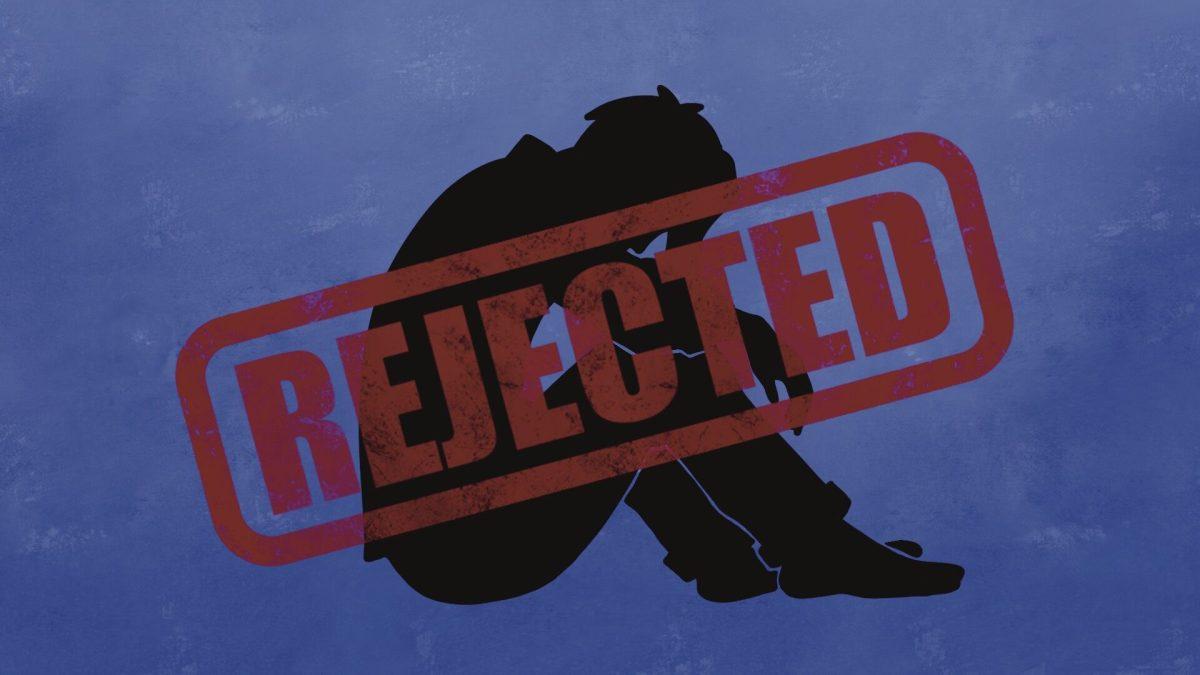Internships, teams, Greek life, clubs and more play an integral part in college life and post-graduate plans. There’s abundant information available about how to get involved, but figuring out how to pick up the pieces after trying and not succeeding is often left undiscussed.
Rejection is unsettling and hurtful, but it is an unavoidable part of life. Rejection is completely normal, but the shameful culture surrounding it often pushes people to hide their feelings and quickly move on for fear of embarrassment or seeming overly sensitive.
It’s easy to feel lost and disoriented when navigating rejection in any facet of life. Abbey Berkebile, a coordinator with the Academic Success Center, emphasized the role that post-graduate plans play in heightening the urgency to find a job, internship or join an organization.
“What you want to do after college is a big place where a lot of pressure stems from,” Berkebile said. “Especially when you know that you’re competing with other people.”
Stress surrounding involvement can also arise from the fear of missing out. With only a few years of college and so many groups and activities all in one place, it’s easy to find yourself spread too thin while trying to make the most of every moment.
“The fear of missing out and wanting to maximize your experience in college can also lead to the pressure of ‘I have to do everything, because when else am I going to have these opportunities?’” Berkebile said.
These factors intensify the stakes of any application, audition or campaign and can make rejection feel like a cascading domino effect that crumbles into all aspects of a student’s personal and collegiate life.
Managing stress and unreasonable expectations doesn’t come easily, it’s often a process that needs to be continuously worked on.
“Practice self reflection,” Berkebile said. “Recognize when you have taken on too much and figure out either how to back off or if there’s an end in sight or be able to reach that end.”
Hiding from the uncomfortable feelings that rejection brings is often instinctual. When dealing with anger, fear, frustration and disappointment, the choice to pretend you’re unbothered sometimes feels like the only way to make it through. However, that option often ends up hindering your ability to process the events, learn from them and take the next step forward.
“Allowing yourself to feel that disappointment at first doesn’t mean you have thin skin,” Berkebile said. “And from there figure out, ‘Okay, what is the next step?’”
When not dealt with, the fear of rejection often begins to inhibit goals, especially those that require a degree of social risk. At a large university, it can be overwhelming trying to connect with others and requires confidence in the face of uncertainty.
Montana Ramakrishnan, a second-year studying psychology and the outreach secretary for the NC State Student Film Society, noted that it takes time and practice to find the courage to get involved.
“It’s hard to put yourself out there,” Ramakrishnan said. “The first time I went to film club, we had a big group discussion and I knew no one there. It was hard to get all my words out.”
If you’re feeling nervous about the social aspect of getting involved, it’s important to remember that student organizations revolve around finding community.
“A club isn’t its own separate social group, it’s something where everyone can participate equally,” Ramakrishnan said. “So don’t be afraid to get yourself out there.”
Trying to recover from past rejection, or even just the possibility of it, will never be a simple task. It takes drive and determination. The choice to pursue a goal is always admirable. It should be committed to and not regretted, regardless of the outcome.
In the thick of rejection, self-reflect and process, but don’t linger. Remind yourself that rejection isn’t a step backward, it stimulates growth and self-discovery.








